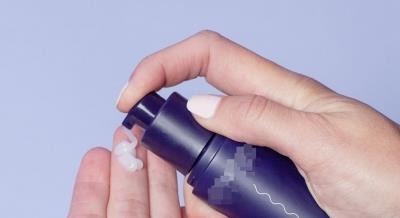
Imported skin whitening creams have high levels of mercury: Toxics Link
New Delhi, Nov 12 (IANS) A study of 15 known brands selling imported skin whitening creams in the Indian markets has found that they contained dangerously high levels of mercury, a heavy metal and neurotoxin.
"A total of 15 skin whitening creams of different brands manufactured in India, Pakistan and Philippines were enlisted for the study. Samples were collected from different cities, i.e., Mumbai, Vijayawada, Delhi and Thiruvananthapuram and tested at the Shriram Institute for Industrial Research in Delhi using Inductively-Coupled Plasma-Mass Spectrometry (ICP- MS) by a standardized method," Toxics Link said in its latest report "Dark truth of skin whitening creams: Presence of Mercury in skin whitening creams".
Toxics Link is a Delhi-based environmental research organisation working on the issue of waste and chemicals for the last 20 years. Toxics Link is part of the global alliance of zero mercury Working Group and involved in this mercury policy project.
The Zero Mercury Working Group (ZMWG) is an international coalition of more than 110 public interest environmental and health NGOs from 55 countries from around the world formed in 2005 by the European Environmental Bureau and the Mercury Policy Project.
According to the World Health Organisation (WHO), mercury is hazardous to health and has the potential to cause damage to the central nervous system, the gastrointestinal system and the kidneys.
The study detected mercury in six out of 15 samples; five samples had alarming levels of mercury ranging from 4,000 to 14,000 ppm (parts per million) and only one out of six samples had mercury concentration below 1 ppm i.e., 0.3 ppm, a release from the Toxics Link said.
The study also revealed that all the six samples containing mercury were manufactured in Pakistan, according to the labels on the packaging. "However, the test results revealed that all the samples manufactured in India had mercury below detectable limits," it said.
India has a stringent regulation, under the Drugs and Cosmetics Rules 2020, to prevent mercury from being added to cosmetics. Manufacturing and import of cosmetics containing mercury compounds are completely prohibited; but unintentional mercury is allowed up to 1 ppm.
Chandni Whitening Cream, Fresh Face, Faiza Beauty Cream, Golden Pearl Whitening Beauty Cream, Goree Day and Night Whitening Cream, Goree Beauty Cream (all from Pakistan) Kojie San (Philippines), Lotus Herbal White Glow Skin Whitening and Brightening Gel, Face Crema (India) are some of the brands.
However, the present study is an indicator that the mercury-containing products are still available in the Indian market. India has also ratified the Minamata Convention on Mercury, which restricts mercury use in cosmetics to 1 ppm.
"It is disturbing that the mercury concentrations in some of the imported samples were found to be as high as 1,000 times more than the current permissible limit of 1 ppm. It is also important to mention that a previous study by Toxics link in 2019 had also reported high mercury concentrations in the same brands. For that study, released on Thursday, the samples were purchased from the online portals Amazon and Flipkart," the release said.
"Availability of highly toxic and non-compliant products in shops and from online portals are serious breach of the national rules and need to be acted upon immediately by the regulators," said Associate Director, Toxics Link, Satish Sinha.
The use of these products could result in severe health risks. Therefore, there is an urgent need for periodic monitoring of imported skin whitening creams by the regulatory authorities, to safeguard the health of the consumers. "A proper surveillance system needs to be in place to prevent high mercury-containing toxic skin whitening creams from being imported into India," Senior Program coordinator, Toxics Link, Piyush Mohapatra said.
--IANS
niv/dpb

Legal Disclaimer:
MENAFN provides the
information “as is” without warranty of any kind. We do not accept
any responsibility or liability for the accuracy, content, images,
videos, licenses, completeness, legality, or reliability of the information
contained in this article. If you have any complaints or copyright
issues related to this article, kindly contact the provider above.


















Comments
No comment